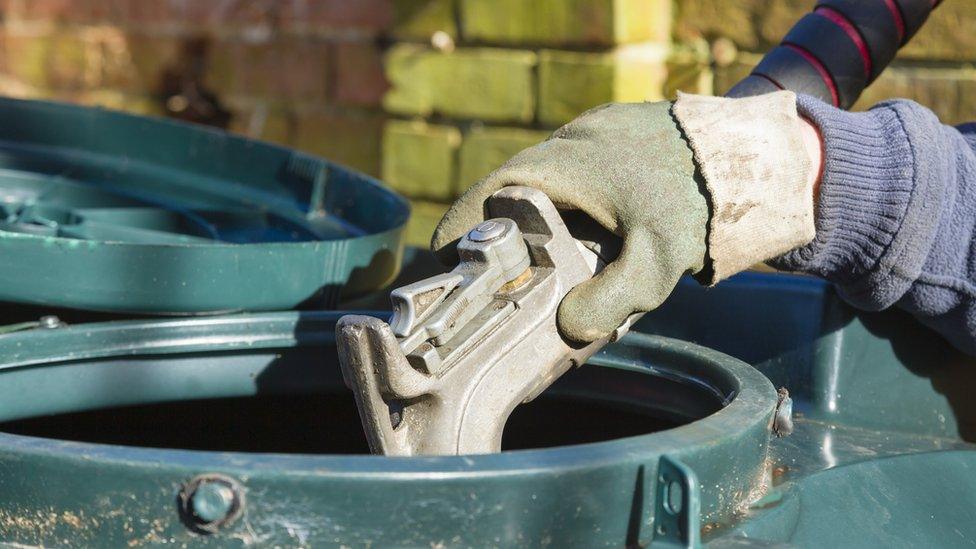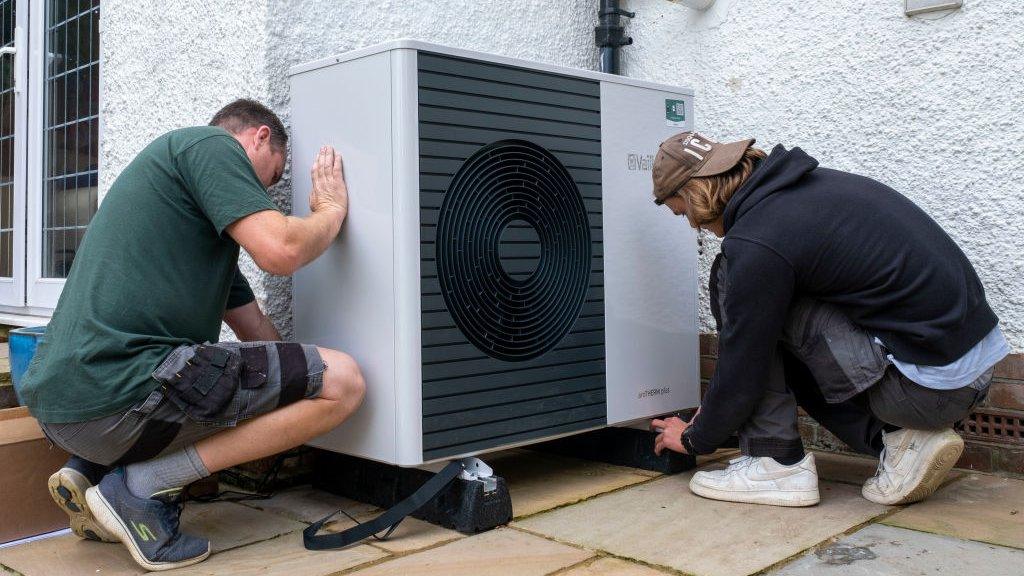Housing Executive expands eco-friendly heating scheme
- Published
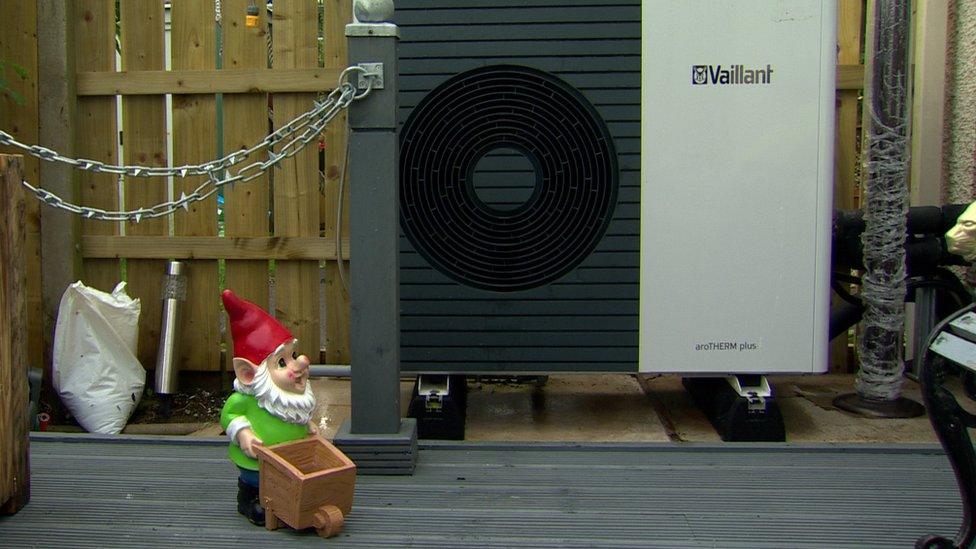
Heat pumps were used in the pilot scheme
A Northern Ireland Housing Executive (NIHE) scheme to decarbonise home heating is being rolled out to another 300 homes.
It followed successful trials in the year since COP26.
The Rural-Led Energy Transition (RULET) project uses smart energy systems with environmentally friendly heating so the most vulnerable households are not left behind in the transition to net zero.
Ulster University led the scheme along with the Housing Executive.
NIHE is responsible for 85,000 homes in Northern Ireland.
Two years ago, six houses in Lisnaskea, County Fermanagh, formed the pilot of the scheme.
In 2021, 10 properties in Omagh, County Tyrone, had their insulation and windows upgraded, before an air source heat pump or hybrid system of heat pump and oil-fired back-up was fitted.
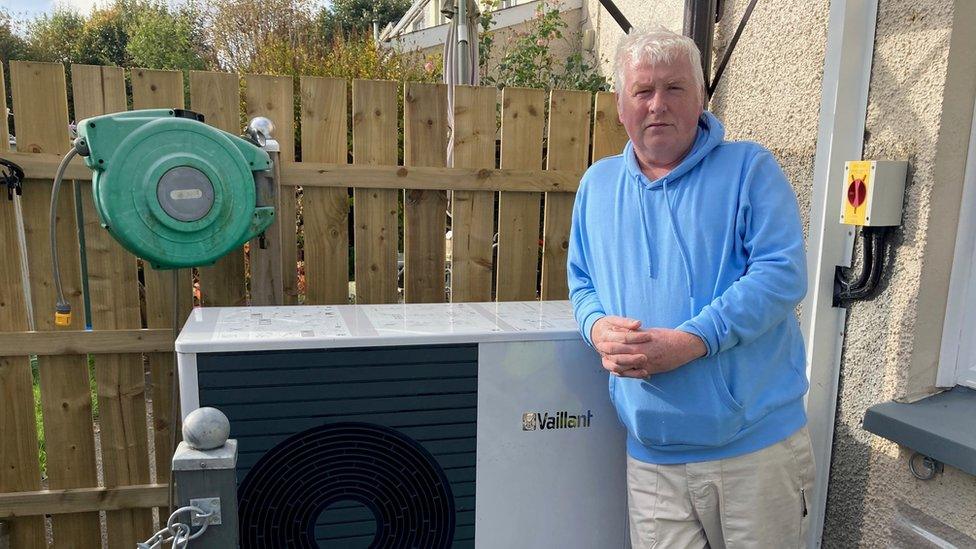
Raymond McAleer, from Omagh, said his standalone heat pump meant he used less energy
Raymond McAleer from Hunter's Crescent in Omagh got a standalone heat pump.
"The heat, you don't maybe have to have it on as often, you're using less energy," he told BBC News NI.
"You can keep your heating really down and let it just tickle over sort of thing, so you're saving too.
"It's a better system, there's more control of it. I would never go back to what I had."
Like approximately two-thirds of homes in Northern Ireland, his home was previously heated with oil.
His new system is controlled through a panel on the wall and an app on his phone, which also provides the NIHE with information about how the system is being used and is performing.
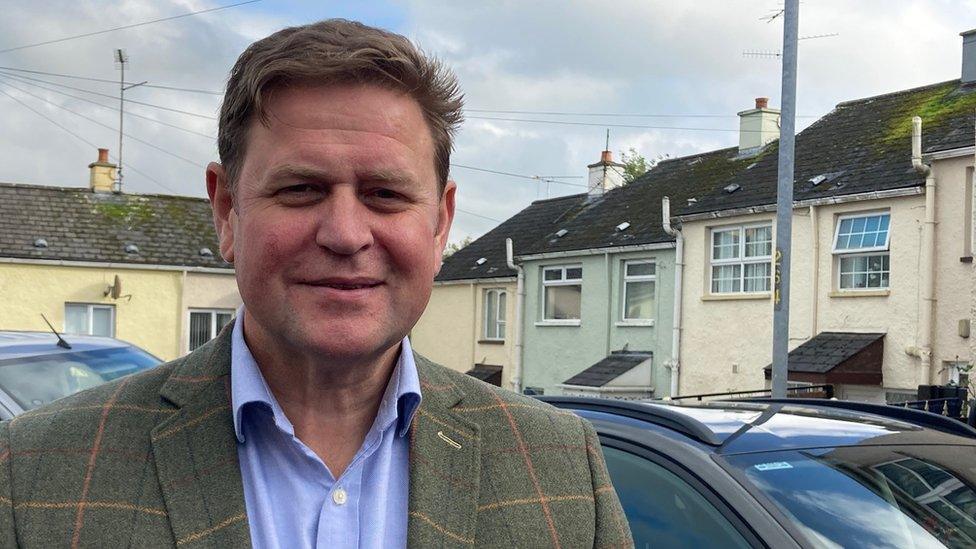
Robert Clements says there are many benefits of the scheme
"The Housing Executive has got two roles here," said Robert Clements, the organisation's head of sustainable development.
"It's the strategic housing authority and the largest landlord in Northern Ireland so we want to use clear evidence base and we will inform all the other housing providers what is best practice as we transition and have a just transition towards net zero."
But he added that retrofitting a house, including upgrading insulation, and installation of a renewable heat system is not cheap.
"The typical average cost... is approximately £18,000 per house," he said.
"This is going to cost money in the start-up, but there will be benefit in the fact that there's going to be reduced carbon, more thermal improvement, better health and wellbeing and better outputs for the householder."
The organisers of the project acknowledge many people will not be able to afford the cost.
But they say RULET will have a long-term impact beyond those in social housing who directly benefit.

Patrick Keatley said the scheme will eventually drive down costs
"In the longer term it will reduce costs," said Patrick Keatley, Ulster University lecturer in energy policy and infrastructure.
"The scale of the social housing sector will drive those costs down eventually and open up markets for everyone to come on board."
He said previous incentives, which depended on people having money to spend in the first place, created a risk of effectively setting up a "middle-class subsidy".
Residential greenhouse gas emissions have dropped by more than a fifth (22%) since 1990, external, which is taken as the base year for assessing emissions.
But they still contributed 13.7% of Northern Ireland's total emissions in 2020.
Expanding this smart energy project in western counties should allow more of the wind power that is generated in Northern Ireland to be used, instead of sometimes being turned off.
"It's not just about putting in kit, it's also about changing the way in which people live their lives, so that they benefit," said Prof Peter Roberts, former chair of the Housing Executive.
"They have a warmer house, they don't consume as much gas oil or electricity as they did previously and overall the carbon budget is reduced.
"It also has a positive impact on their wallet."
- Published1 November 2021
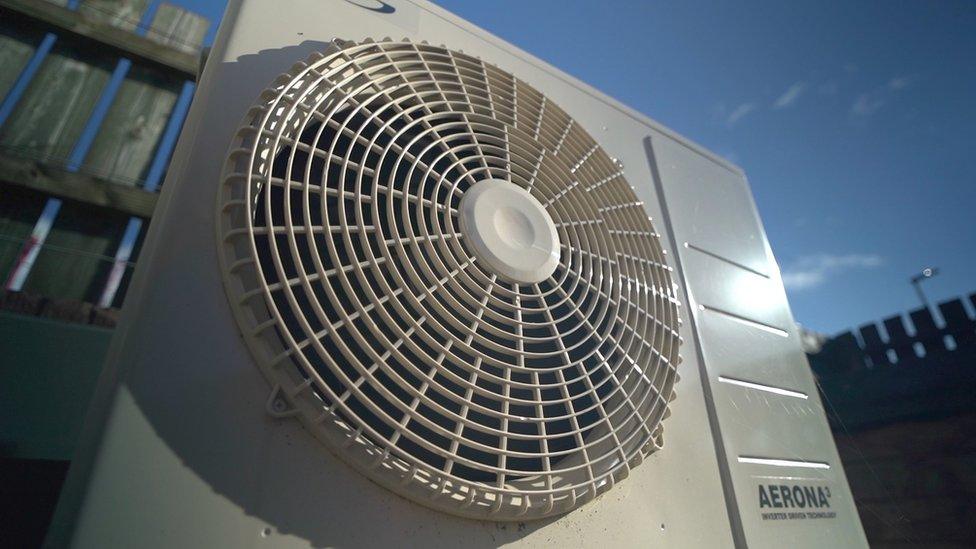
- Published19 October 2022
